Results
-
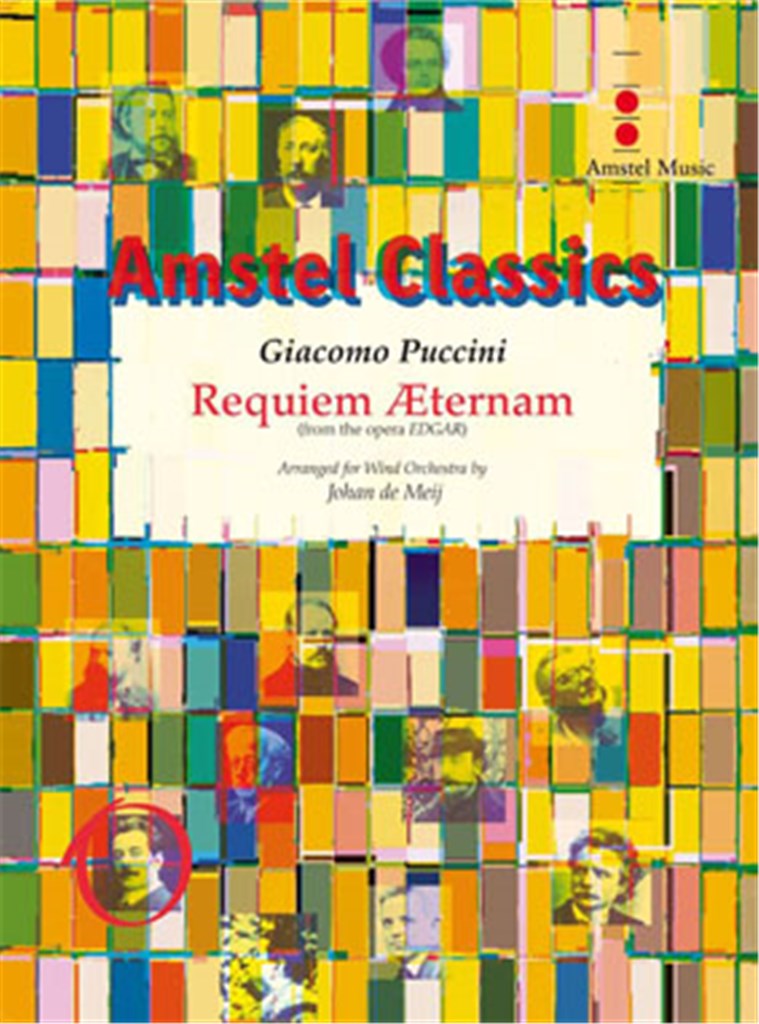 £68.00
£68.00Requiem Aeternam (from Edgar) (Concert Band - Score and Parts) - Puccini, Giacomo - De Meij, Johan
Giacomo Puccini was commissioned to write a second opera after the resounding success of his first, Le Villi. However, the original four-act, grand opera Edgar, to a libretto by Ferdinando Fontana, received a rather lukewarm reception at its premiere in La Scala in Milan in 1889. Initially, the work was only performed three times. Of all the planned performances in the subsequent two years, only one took place, in Lucca, Puccini's birthplace. There, the work was well received. Nevertheless, the composer decided to make drastic changes to Edgar the most radical being the reduction of the opera to three acts, as well as altering a few arias, characters and instrumental parts. In its revised form, the work was even less popular than before. The discarded fourth act later provided material for Tosca (the duet Amoro sol' per te), but Puccini never felt the need to defend Edgar as he did other less fortunate operas, such as La Rondine and Suor Angelica. On a piano excerpt for his female friend Sybil Seligman he even corrupted the title to 'E Dio ti Guarda da quest' opera' (may God preserve you from this opera). This did not prevent Arturo Toscanini performing the Requiem from the third act at Puccini's funeral in Milan Cathedral on 3 December 1924. The Requiem in the third act is being played when the long funeral procession carries the alleged body of Edgar, the confused young man hesitating between the love of the virtuous Fidelia and the exotic Tigrana. The mass hails Edgar as a hero, but a monk claims that he has betrayed his country for a few gold pieces. When the soldiers try to desecrate the body, they discover that the armor contains none. The monk reveals himself as Edgar. He wants to leave with his faithful Fidelia, but the vengeful Tigrana stabs him and kills Fidelia. Edgar grieves over the lifeless body of his beloved, while Tigrana is arrested and the people submerge into prayer. Duration: 3.30
Estimated dispatch 7-14 working days
-
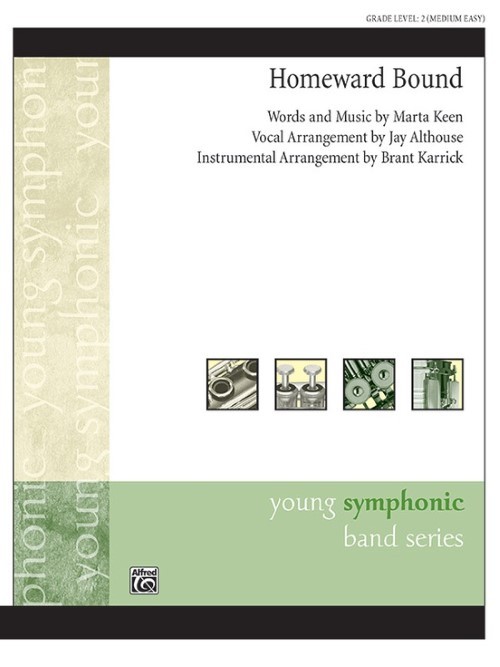 £58.50
£58.50Homeward Bound (Concert Band - Score and Parts) - Keen, Marta - Karrick, Brant
Homeward Bound is one of the most popular and widely-performed contemporary choral pieces. This heartfelt piece is elegant in its simplicity and has touched thousands of musicians and their audiences with its warmth and sincerity. Additionally, it has become the anthem for many soldiers returning home. Create a stirring moment for combined band and choir using this exquisite new setting for concert band. The choral arrangement is by Jay Althouse.
Estimated dispatch 7-14 working days
-
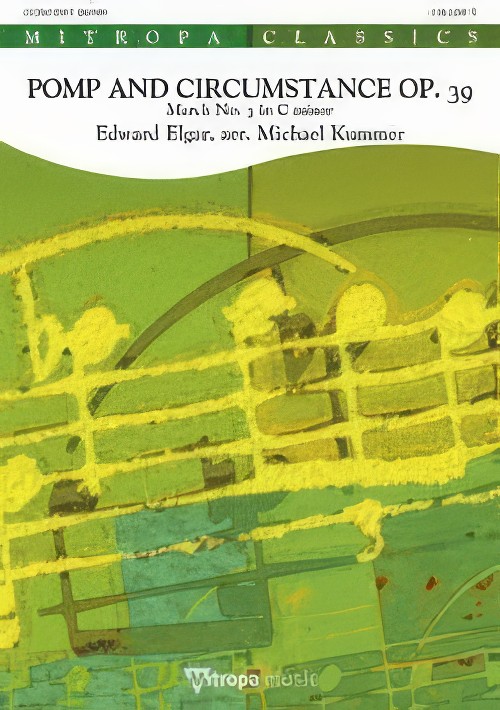 £109.99
£109.99Pomp and Circumstance No.3, Op.39 (Concert Band - Score and Parts) - Elgar, Edward - Kummer, Michael
The English composer Sir Edward Elgar wrote the five Pomp and Circumstance marches between 1901 and 1930, the time of the British Empire, when the colonial and strategic world power of England was at its peak. March No. 3 in C minor, although less well-known then March No.1, was regarded by the composer as the most successful of the marches in terms of composition technique and musical content. The dark colours of the minor tonality and the hopeful sounding cantabile theme are extremely impressive, giving the march its unique character. This is a great chance to bring British pomp and splendour to your performance.
Estimated dispatch 7-14 working days
-
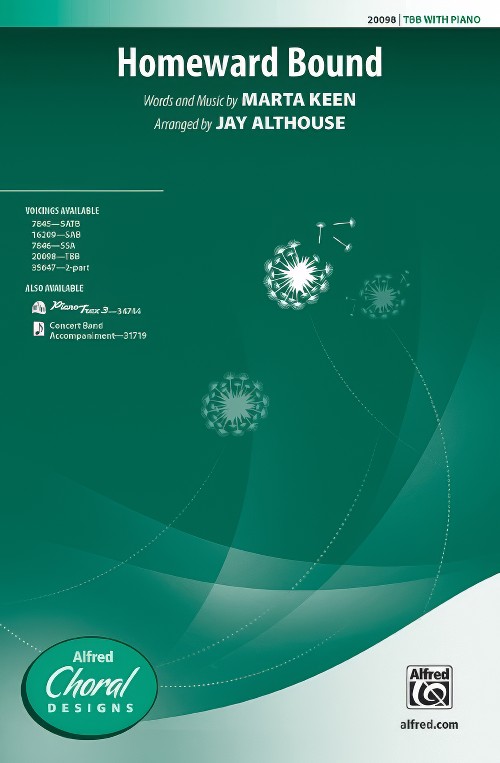 £2.25
£2.25Homeward Bound (TBB Choral Octavo) - Keen, Marta - Althouse, Jay
Homeward Bound is one of the most popular and widely-performed contemporary choral pieces. This heartfelt piece is elegant in its simplicity and has touched thousands of musicians and their audiences with its warmth and sincerity. Additionally, it has become the anthem for many soldiers returning home. Create a stirring moment for combined band and choir using this exquisite new setting for concert band.
Estimated dispatch 7-14 working days
-
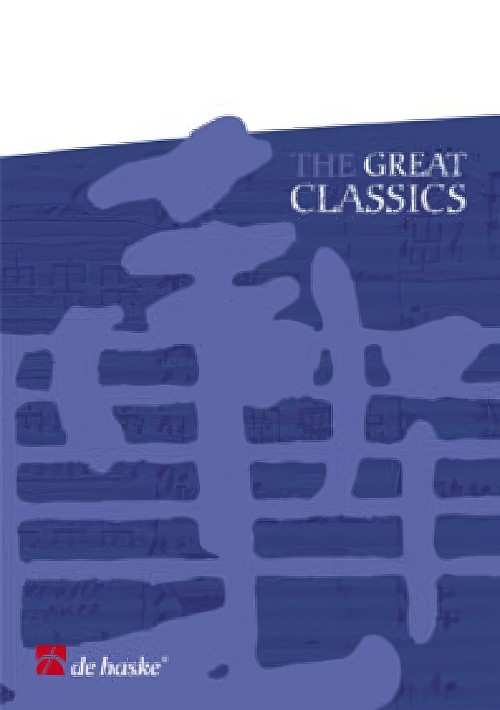 £154.99
£154.99Poet and Peasant Overture (Concert Band - Score and Parts) - Suppe, Franz Von - Takahashi, Tohru
Preludes and overtures were often written to set the mood of Viennese folk plays and therefore might be used for more than one production. Such was the case for Poet and Peasant, which introduced a comedy of the that name in 1846. The piece had already been heard as the overture to the play Lots of money, short of sleep and may also have prefaced two other plays. This overture did not belong to an opera until several years after its 1845 composition date. The themes from this overture are among the most often quoted material for comic effects for stage productions and animated cartoons. Probably, they represent, in sound, an era of nostalgia from the old-time park band concerts and are familiar to audiences of all age groups. This composition deserves to be heard in its original context as a serious, but highly entertaining, selection.Duration: 10:15
Estimated dispatch 7-14 working days
-
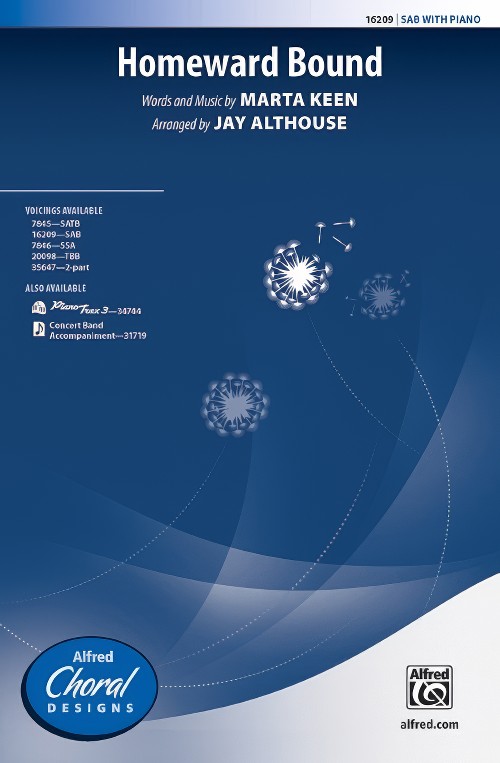 £1.95
£1.95Homeward Bound (SAB Choral Octavo) - Keen, Marta - Althouse, Jay
Homeward Bound is one of the most popular and widely-performed contemporary choral pieces. This heartfelt piece is elegant in its simplicity and has touched thousands of musicians and their audiences with its warmth and sincerity. Additionally, it has become the anthem for many soldiers returning home. Create a stirring moment for combined band and choir using this exquisite new setting for concert band.
Estimated dispatch 7-14 working days
-
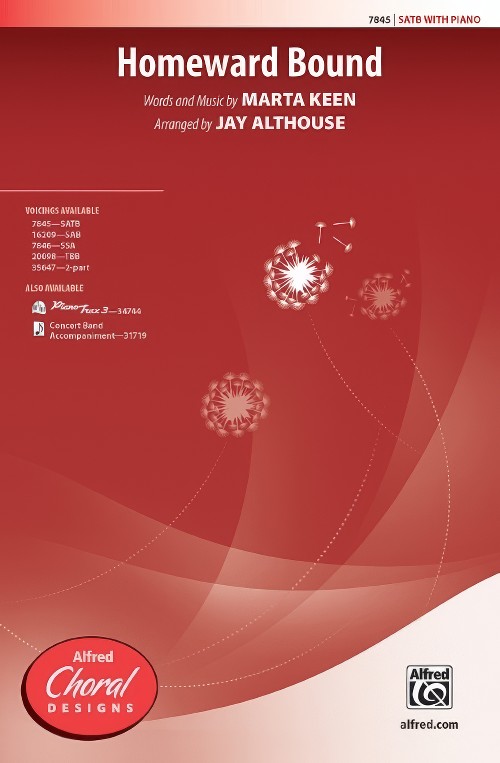 £1.95
£1.95Homeward Bound (SATB Choral Octavo) - Keen, Marta - Althouse, Jay
Homeward Bound is one of the most popular and widely-performed contemporary choral pieces. This heartfelt piece is elegant in its simplicity and has touched thousands of musicians and their audiences with its warmth and sincerity. Additionally, it has become the anthem for many soldiers returning home. Create a stirring moment for combined band and choir using this exquisite new setting for concert band.
Estimated dispatch 7-14 working days
-
 £1.95
£1.95Homeward Bound (SSA Choral Octavo) - Keen, Marta - Althouse, Jay
Homeward Bound is one of the most popular and widely-performed contemporary choral pieces. This heartfelt piece is elegant in its simplicity and has touched thousands of musicians and their audiences with its warmth and sincerity. Additionally, it has become the anthem for many soldiers returning home. Create a stirring moment for combined band and choir using this exquisite new setting for concert band.
Estimated dispatch 7-14 working days
-
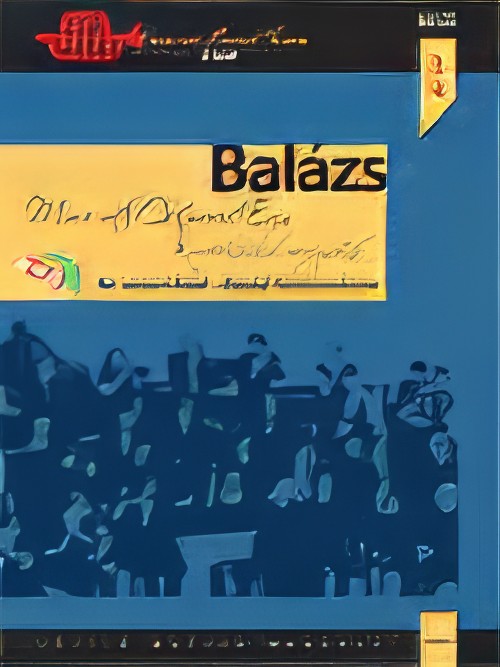 £99.95
£99.95MUSIC WITH CHEQUERED EARS (Advanced Concert Band) - Balazs, Arpad
Television viewers of nearly a hundred countries have experienced Arpad Balazs's touching melodies. The series of cartoons have neither dialogue nor text: the music presents the amiable and entertaining adventures of the rabbit with chequered ears and its friends. Balazs has rephrased and developed the well-known melodies and as a result a ''children's story symphony'' of seven movements has been created in which, in contrast with Prokofiev's Peter and the Wolf, there is no narrator but the instruments themselves represent the story-tellers. The composer has again associated the groups of instruments with one another in a colourful and varied manner, skilfully alternating the modes of solo, chamber orchestra and orchestra. Movements I, II, IV and VII represent a ''short suite'' that can be independently performed, thus due to its duration of four minutes and easier level, ensembles with more modest opportunities can also perform it. The most well-known parts of the cartoon series music - the main title and the ending - are included in both versions. Includes: The Story Begins; The Sun has Come Out; To the Forest!; Game of Tag; The Tired Team Walks Slowly Home; In the Circus; The Story Ends for Today. Duration: 4:00
Estimated dispatch 7-14 working days
-
 £144.99
£144.99Whispering Wind Wind Band Set (Score & Parts)
"Don't listen to anyone's advice, but listen to the lessons of the wind passing and telling the history of the world." Claude Debussy Since the dawn of time, the wind has played an important role in all civilisations. Worshipped as a deity, "mastermind" of poetry, driving force, or heaven's messenger, the wind took on the most varied shapes according to the era and people. In Claude Debussy's time, music listened to the voice of nature, and imagination found its primary rights again. This importance of wind was the inspiration for Maxime Aulio's work Whispering Wind with its suspended atmospheres, vaporous lines and luminous colours. The wind caresses the canvas. A fascinating new work for concert band. 0:06:15
Estimated dispatch 7-14 working days
